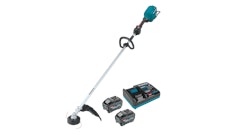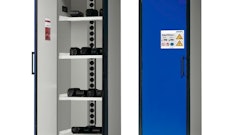Collections and cash flow have taken on a whole new level of importance over the past couple of years. You can save a lot of money with basic business practices such as open lines of communication, billing customers on time, appropriate contracts and change orders, purchasing the right insurance policies, gauging customer satisfaction with surveys, and thoroughly interviewing employees.
Here are some other best practices from SolidContract.com.
Due upon receipt
When it comes to collecting payments and protecting cash flow, having a relaxed attitude will not pay off. Usually it is not until a customer doesn’t pay that we begin to backpedal and try to figure out how to get the money we worked so hard for.
If you don’t collect payment in person when the job is done, send an invoice the day you complete the work. How long do you wait for your customer to pay his bill—30 days, 60 days? If you’re waiting that long, chances are you’ll experience a reduced cash flow or even a cash crunch.
All invoices should be due upon receipt, with the words “due upon receipt” highlighted. If you don’t receive payment in 14 days, call your customer. If you wait to make this call, your customer will think you’re sloppy, disorganized, and don’t care about getting paid. However, the phone shouldn’t be a collections device; it’s a customer relations tool. For example, if you haven’t received a check in 14 days, inquire, “Mrs. Smith, I noticed we haven’t received your payment. Is everything satisfactory with the service?”
Placing follow-up calls can help you retain customers and keep them happy, making you less stressed. Don’t underestimate the value of strengthening relationships with your customers. Talk to them every day on larger jobs, and at least once a month on smaller jobs like mowing. Listen to your customers—they can tell you a lot.
The best offense is a good defense
Even before you get to the invoicing stage, there are vital questions you need to ask yourself as you begin every new job. First and most importantly, do you have a signed contract that states what you are going to do, what materials will be used, and what the timeframe is for completing the work? Without a signed contract, you can find yourself in trouble very quickly and, at that point, all the reactive measures in the world can’t offer you much assistance.
Secondly, if anything changes from the contract, get a change order. How many times have you gotten to the end of the job to find yourself fighting for the $2,500 in extras that the customer approved on site but not in writing? If the customer asks for something outside the original contract, stop the job and get a change order—and get it signed.
When a customer doesn't pay
Unfortunately, even the most proactive contractors run into customers who refuse to pay for work that’s been completed. Unfortunately, there aren’t many cost-effective options for contractors to collect debt. Collection agencies take a chunk of the money they collect for you. Attorneys’ fees aren’t cheap. The court system is time-consuming and ineffective, and liens are useless unless the customer tries to sell or refinance their home.
The key to collecting money from customers is to do it without damaging the business relationship. First, find out why the customer is late with the payment. Is he or his company falling on hard times, or does he simply have no intention of paying?
If the customer is feeling a temporary financial pinch, talk to him (for a company, talk to the president or owner). Tell him you are willing to be patient, but that you expect to get paid as soon as possible. Ask for partial payment as proof of good faith. If your customer plans to file for personal bankruptcy or if the business is folding up, move swiftly to try to collect something before all assets vanish.
Avoid late-paying customers
Landscape contractors can consider tools like SolidContract.com to help protect their businesses by avoiding non-paying customers, as well as collecting on past due accounts in a professional, cost-effective manner.
SolidContract.com lets you find out which customers have failed to pay contractors so you can make informed decisions about who you work for. It’s a credit reporting agency for contractors. By maintaining a database of consumers who are slow to pay or don’t pay at all, SolidContract.com allows contractors across the country to find out who hasn’t paid contractors in every profession from lawn care to roofing to oil delivery. The names of non-paying customers stay in a database for up to seven years.
Quality work, customer service and communication can go a long way in tight times. But, most importantly, it can keep your business prosperous. However, smart businesspeople always consider new and different ways to run and protect their business. Consider all of your available options to protect your business, and look ahead to the future to anticipate your needs. If you serve your customer well, proactively protect your business, and have the right tools in place, you can avoid a cash crunch, even in today’s tough economy.
How the PROs are doing it
“We leave a slip after each visit. This helps us get paid a lot faster while also removing any uncertainty over whether or not we were there that day. They see the slip, see the freshly cut lawn, and think, ‘Guess I better write out a check.’ Many of our customers do, and we’re already paid before we’re back on their property the following week. I’ve been doing this for more than 20 years and it’s worked great.”
Henry Flynn
H.C. Lawn & Maintenance
Thomaston, CT


























